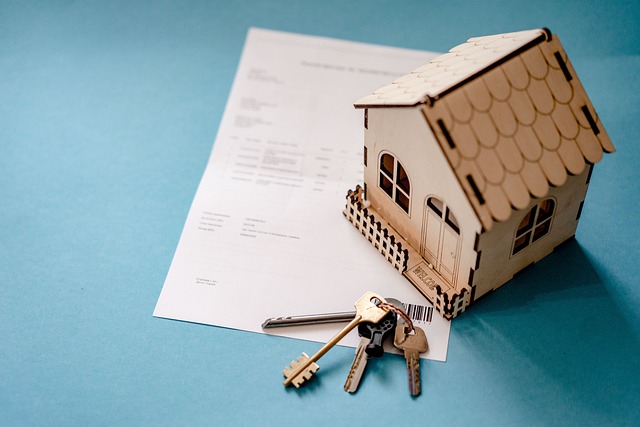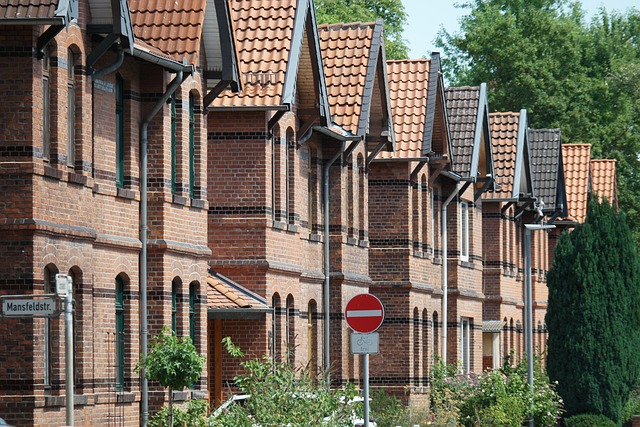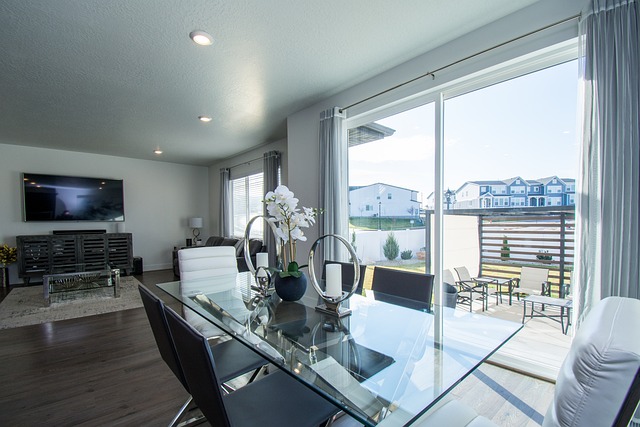Singapore's Buy Resale EC Singapore initiative caters to middle-income families transitioning from HDB flats, offering Executive Condos (ECs) as an intermediate housing option. To qualify for a resale EC, prospective buyers must be Singaporean citizens with a household income below the HDB's threshold, and they cannot currently own or have previously disposed of an HDB flat or private property within the past 30 months. These ECs sit atop 99-year leasehold land, and buyers should consider the remaining lease term, as it affects long-term value. Lease decay is a significant factor, with properties typically depreciating as the lease shortens; however, lease extension is possible. Financing options include using CPF savings, with specific withdrawal limits to consider, alongside bank loans within certain Loan-to-Value (LTV) ratios. Prospective buyers must conduct due diligence, examining historical transaction data and pricing trends, to make informed decisions that align with their financial goals and optimize their investment in the resale EC market in Singapore.
navigating the complexities of property ownership in Singapore, particularly when considering a Resale Executive Condominium (EC), requires a keen understanding of the local legal landscape and eligibility requirements. This article delves into the nuanced aspects of purchasing a resale EC, offering clarity on the Housing & Development Board’s (HDB) regulations, the availability of CPF housing grants, and the legal framework that governs these unique housing types. Prospective buyers will find essential guidance on due diligence, financing options such as CPF usage and LTV ratios, and the impact of lease decay on resale value and future marketability. Understanding these factors is crucial for anyone looking to buy a resale EC in Singapore and secure their property investment with confidence.
- Understanding the Unique Aspects of Buying a Resale Executive Condo (EC) in Singapore
- Eligibility Criteria for Purchasing Resale ECs: What You Need to Know
- Legal Framework Governing Executive Condos: The Housing & Development Board (HDB) and CPF Housing Grants
- Due Diligence: Essential Steps in the Resale EC Buying Process
- Financing Your Resale EC: CPF Usage, Loan-to-Value (LTV) Ratios, and Mortgage Terms
- Lease Decay and Its Implications on Resale EC Value and Future Resale Prospects
Understanding the Unique Aspects of Buying a Resale Executive Condo (EC) in Singapore

In Singapore, the unique category of housing known as Executive Condos (ECs) offers a viable alternative for both singles and families looking to purchase a property. Unlike traditional public housing flats, ECs are designed to cater to the needs of upgrading from a Housing & Development Board (HDB) flat to a private property. When considering the purchase of a resale EC in Singapore, particularly under the ‘Buy Resale Ec Singapore’ initiative, it is crucial to understand the specific regulations and eligibility criteria that apply. Prospective buyers must be aware that only Singaporean families are eligible to purchase an EC, and they can only apply for one if at least one applicant owns a HDB flat or has previously owned one. Additionally, applicants’ average monthly household income should not exceed SGD14,000. This financial criterion is a unique aspect of purchasing an EC, ensuring that these homes remain accessible to the middle-income group.
The process of buying a resale EC also differs from buying a new one, as it involves dealing with individual sellers rather than developers. This means potential buyers must conduct due diligence on the property’s condition and any associated legal matters, such as outstanding CPF (Central Provident Fund) housing grants that may have been utilized in previous transactions. Furthermore, the Minimum Occupation Period (MOP) for ECs is five years, which means buyers should only consider resale units where this requirement has been met to avoid any complications with ownership rights. Understanding these nuances and ensuring compliance with the rules governing ECs is essential for a smooth transaction and to avoid any future disputes or issues with residence eligibility in Singapore.
Eligibility Criteria for Purchasing Resale ECs: What You Need to Know

When considering the purchase of a resale Executive Condominium (EC) in Singapore, potential buyers must be well-versed with the eligibility criteria set forth by the government. As of current regulations, to buy a resale EC in Singapore, applicants must satisfy certain conditions. Firstly, applicants should not have any existing flat owned separately or jointly either from the Open Market or from the Housing & Development Board (HDB). Secondly, the applicant’s total household income should not exceed the ceiling set by the Housing & Development Board (HDB). Additionally, at least one applicant must be a Singapore citizen, and all Singaporean applicants must be first-timer applicants for a new EC, or possessers of an EC which was acquired via the Open Market. Furthermore, Overseas Citizens of Singapore (OCS) are eligible to apply but with certain stipulations: they must either possess a Singaporean spouse or have parents who are Singapore citizens. Understanding these criteria is crucial for prospective buyers looking to buy resale ECs in Singapore, as failure to meet them could result in the application being rejected. Prospective buyers are encouraged to refer to the official HDB guidelines or consult property professionals specializing in EC transactions to ensure compliance with all eligibility requirements before proceeding with a purchase.
Legal Framework Governing Executive Condos: The Housing & Development Board (HDB) and CPF Housing Grants

In Singapore, Executive Condos (ECs) represent a unique housing option for eligible middle-income families looking to purchase resale EC units, as per the regulations set forth by the Housing & Development Board (HDB). These residential opportunities are governed by a comprehensive legal framework that ensures they cater specifically to this demographic. The legal framework encompasses eligibility criteria, which include the income ceilings and age limits for applicants, as well as the resale pricing mechanisms that align with the financial capabilities of middle-income earners. Notably, the HDB administers this framework, providing clear guidelines on the purchase of ECs. Additionally, prospective buyers can apply for CPF Housing Grants to ease the financial burden of purchasing an EC. The CPF Board offers these grants as part of Singapore’s commitment to assist citizens in owning their homes and enhancing their living standards, making resale ECs a more accessible option for many. Prospective buyers interested in buy resale ec singapore must familiarize themselves with the HDB’s stipulations and the CPF Housing Grant schemes to navigate this process effectively. This includes understanding the resale price limits, which are adjusted periodically to reflect market conditions and the financial landscape of middle-income families. By doing so, they can make informed decisions that align with their long-term housing goals.
Due Diligence: Essential Steps in the Resale EC Buying Process

When considering the purchase of a resale Executive Condominium (EC) in Singapore, due diligence is paramount to navigate the unique aspects of EC ownership and resale procedures. Prospective buyers must thoroughly understand the terms and conditions set forth by the government as they differ from private condos. A prudent approach involves a comprehensive examination of all factors that can impact your investment and living experience. This includes scrutinizing the EC’s lease details, as ECs are situated on Housing & Development Board (HDB) land, with a 99-year lease commencing from the year of acquisition. It is also crucial to assess the remaining lease, as this will affect the property’s value over time. Additionally, potential buyers should review the EC’s past transactions and pricing trends in the area. This historical data can provide insights into the property’s market position and growth potential. Furthermore, understanding the eligibility criteria for future privatization is essential, as ECs can be privatized to become private condominiums after meeting specific conditions over a 10-year period. By carefully conducting these due diligence steps, buyers can make informed decisions when purchasing a resale EC in Singapore, ensuring compliance with the regulations and maximizing their long-term benefits. Those interested in buy resale ec singapore should approach this significant financial commitment with a well-informed perspective, leveraging professional advice to facilitate a smooth transaction.
Financing Your Resale EC: CPF Usage, Loan-to-Value (LTV) Ratios, and Mortgage Terms

When considering the purchase of a resale Executive Condominium (EC) in Singapore, understanding the financing options available is paramount. Prospective buyers have the advantage of utilizing their Central Provident Fund (CPF) savings to finance their EC purchase. CPF funds can be used for the downpayment as well as the monthly installments, making it a viable and cost-effective option for many homeowners. It’s essential to be aware of the CPF withdrawal limits and how they apply to your EC purchase to ensure you maximize the use of your savings without breaching the regulations.
In addition to CPF usage, potential buyers must familiarize themselves with the Loan-to-Value (LTV) ratios set by financial institutions in Singapore. The LTV ratio determines the proportion of the property’s value that can be financed through a mortgage. Typically, banks offer up to 75% to 80% LTV for ECs, with the exact percentage depending on the buyer’s creditworthiness and the property’s valuation. This means buyers may need to prepare a significant downpayment to cover the difference. The terms of the mortgage are also crucial; they include interest rates, loan tenure, and early repayment penalties if the loan is settled before its maturity. Understanding these aspects ensures that buyers can make informed decisions, aligning their financial commitments with their long-term plans when buying a resale EC in Singapore.
Lease Decay and Its Implications on Resale EC Value and Future Resale Prospects

When considering the purchase of a resale Executive Condo (EC) in Singapore, one critical aspect to evaluate is the potential impact of lease decay on the property’s value and future resale prospects. The Singapore government allows the freehold of ECs to diminish to 99 years from the original 99-year tenure upon satisfaction of certain criteria, which includes the completion of a minimum number of years post-privatization before application can be made. This process, known as lease decay, is significant as it affects the property’s attractiveness to future buyers. Prospective residents need to assess the remaining lease and account for the fact that as the lease shortens, the value of the EC tends to depreciate. This depreciation becomes more pronounced as the lease nears its expiry. For those eyeing a buy resale EC in Singapore, it’s crucial to consider the remaining lease term and how this will influence the property’s valuation upon resale. The shorter the lease, the steeper the potential drop in price, which can be mitigated by the purchaser applying to extend the lease. This lease extension, however, comes with costs and procedures that need careful planning and consideration. As such, understanding the implications of lease decay on the resale EC value is a pivotal decision-making factor for investors and residents alike, influencing not only the initial purchase price but also the long-term investment potential and the ease with which one might sell the unit in the future. Buyers should thus approach resale ECs with a clear understanding of the remaining lease and the associated impacts on their investment’s value over time.
When considering the acquisition of a resale Executive Condo (EC) in Singapore, prospective buyers must navigate a distinct legal landscape. This article has outlined the crucial aspects of resale EC transactions, including eligibility criteria, the legal framework provided by the Housing & Development Board (HDB), and the financial considerations such as CPF usage and loan-to-value ratios. It is evident that due diligence and a thorough understanding of lease decay and its effects on property value are paramount for informed decision-making in the EC market. For those looking to buy a resale EC in Singapore, this guide serves as a comprehensive resource to navigate the process with confidence. With the right knowledge and preparations, buyers can secure a home that meets their needs while capitalizing on the unique benefits of EC ownership.
